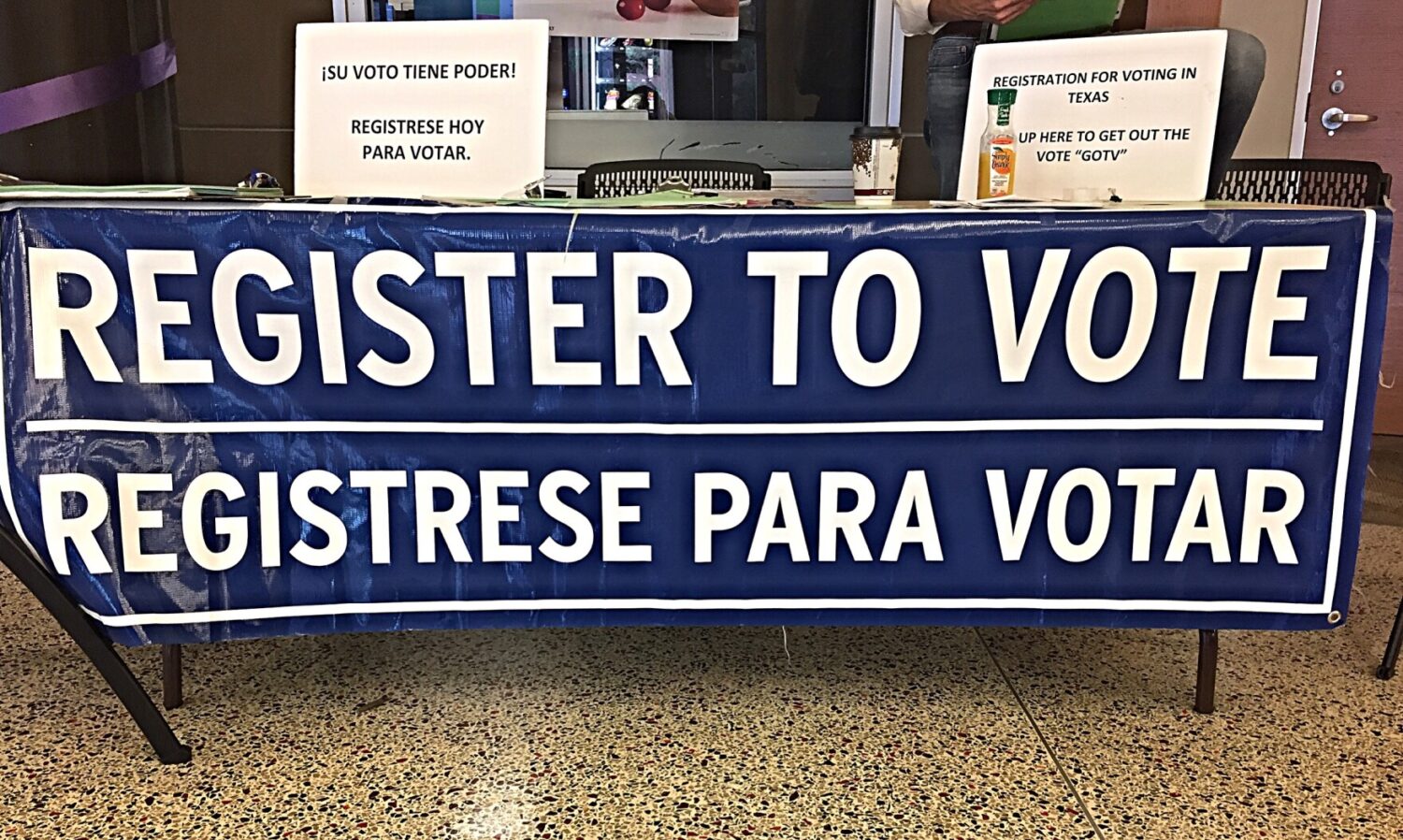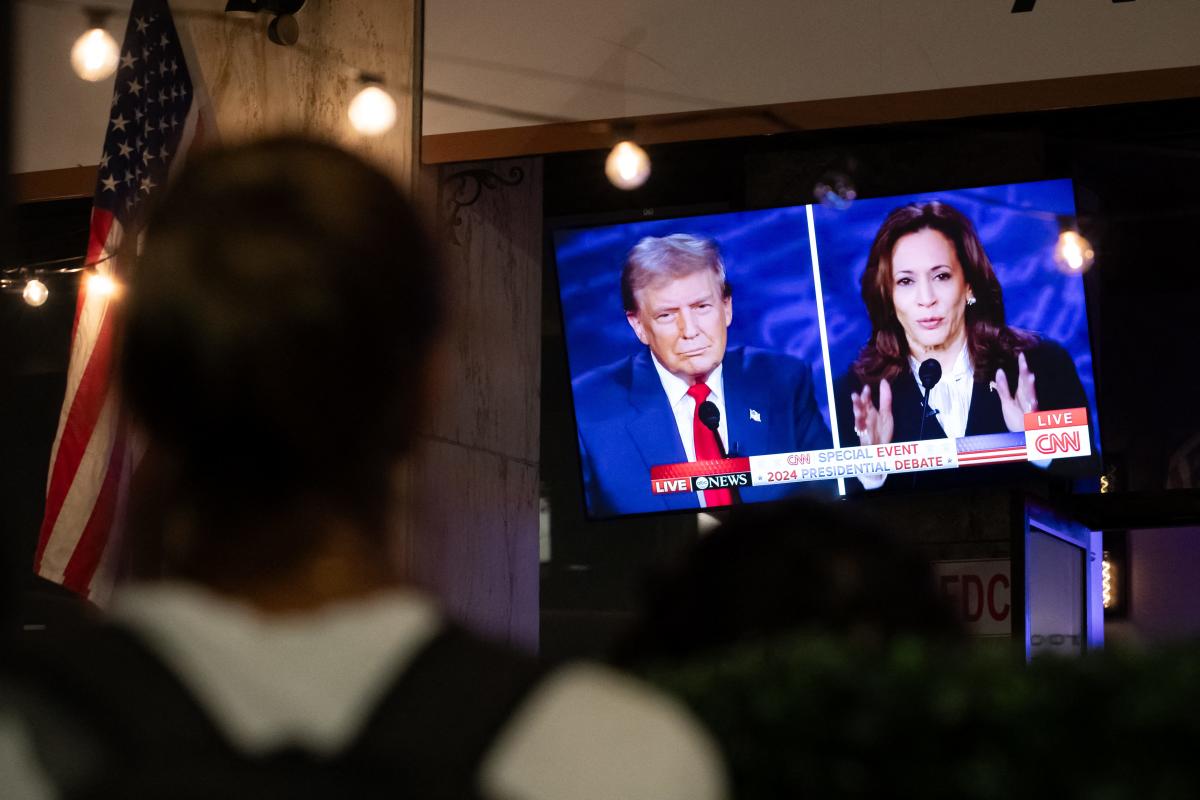Gus Contreras / KERA News
As the 2024 presidential election approaches, Republican state leaders have turned their focus to voter fraud – raising talking points about noncitizen voters and drawing criticism from advocates who say state leaders are targeting Hispanic voters.
In Fort Bend – one of the most diverse counties in the state – roughly a third of its residents are immigrants. Though the county has not drawn the attention of state leaders, members of both political parties say they’re mobilizing ahead of November’s election.
Earlier this month, more than 53,000 voters were on the county’s suspense list – residents whose registration will be canceled after two federal elections, if they fail to vote or update their voter information.
As of Tuesday, that number had since dropped by nearly 600 voters.
“People are seeing stuff in the media about checking their registration and they find out they’re on suspense because they’ve moved and not updated [their registration],” Fort Bend Elections Administrator John Oldham said.
Local reactions
Edward Cavey runs the election integrity team for the Fort Bend GOP. He’s also a member of the county’s early voting ballot board – a nonpartisan group whose main responsibilities include processing mail-in ballots and provisional ballots.
The Texas Secretary of State’s office uses data from the U.S. Postal Service to identify voters who may have moved out of state. Cavey said the local GOP also uses the database to identify voters who may have moved and file residency challenges with the county.
Under Texas law, a registered voter may challenge the registration of another voter within the same county, if they have “personal knowledge” of the challenged voter’s ineligibility.
According to Cavey, Fort Bend County has rejected his group’s residency challenges, arguing that using the database does not qualify as “personal knowledge.” Cavey argues, however, that the U.S. Postal Service data should suffice.
“We want to get the law changed to make that a little bit more clear,” he said.
Still, Cavey said he has faith in the county’s elections office and its ability to protect against voter fraud.
“Frankly, I don’t believe Fort Bend County is actually the subject of much shenanigans. I haven’t seen it,” he said. “I’m the great defender of our EA (elections administrator) office in Fort Bend County. I think they do a good job.”
Jennifer Cantu is an active member of the Fort Bend County Democratic Party, as well as the League of United Latin American Citizens (LULAC).
She said she’s been working with other advocates to call Hispanic senior citizens to make sure they’re registered to vote.
In August, Texas Attorney General Ken Paxton accused Hispanic democrats in south Texas of election fraud and voter harvesting, issuing warrants for raids. The investigations drew sharp criticism from voting rights advocates, who said Paxton was trying to suppress Hispanic voters.
Cantu is also working with Fort Bend County Democrats to contact people who have been removed from the voter rolls and encourage them to re-register to vote.
“One of the coordinators for the democratic party … was doing only Precinct 3 and they had a pretty huge list in Precinct 3,” Cantu said.
Voter registrations in Fort Bend
In August, Governor Greg Abbott announced that more than 1 million voters had been removed from the rolls since September of 2021 when the governor signed Senate Bill 1 into law.
The bill further limited mail-in voting and did away with 24-hour polling locations and drive-thru voting.
From Jan. 1, 2021 to early September of this year, 86,646 Fort Bend voters were removed from the rolls.
Oldham estimates that about half of those voters were removed because they were on the suspense list for two federal elections.
Some Republican state leaders have raised concerns about noncitizens voting in elections, though a recent analysis by the Heritage Foundation, a conservative think tank, found few instances in Texas.
Oldham said there have been few cases of noncitizens registering to vote in Fort Bend County in the last 15 years.
In one instance, a group of nonresidents reached out to the elections office after they were registered to vote, as they suspected they were not qualified.
Oldham can only recall one instance where a noncitizen voted in Fort Bend. The district attorney’s office investigated and did not press charges, concluding that the resident had been confused when registering to vote, as English was not their first language.
In 2019, the Texas Secretary of State announced that it had identified more than 90,000 alleged noncitizens on the voter rolls.
The secretary of state instructed local elections offices to begin contacting the voters and put them on the suspense list. Fort Bend County received a list of about 8,000 people, Oldham said.
“Once we started doing this, we realized that a lot of this data was pretty old,” he said.
The state quickly ended the voter purge after a legal challenge revealed that the data was inaccurate.
“Voter fraud is very rare, despite what you hear,” Oldham said.
Texas residents can check their voter registration on the Secretary of State’s website. The last day to register to vote in the November general election in Texas is Oct. 7.















